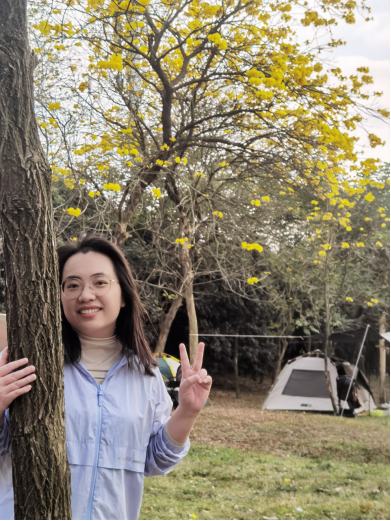陈玉婷个人简介(公共卫生、卫生毒理学)
讲师,硕士生导师,1989年11月生。教学方面:承担《卫生毒理学》、《预防医学导论》、《职业卫生与职业医学》、《环境卫生学》和《预防医学概论》等本科生课程和《环境与职业健康》等研究生课程的教学工作。研究方向:主要从事外源化学物代谢活化与遗传毒性的研究。近年主持各类科研课题4项,其中国家级课题1项,省部级课题1项,市厅级课题1项,校级课题2项。发表学术论文12篇,其中SCI论文10篇。学术兼职:担任中国毒理学会生化与分子毒理学专业委员会委员和广东省毒理学会青年委员会委员。联系方式:yutingchen@gdmu.edu.cn。
一、学习及工作经历
2019.07-至今 学院 预防医学系 讲师
2016.09-2019.06 南方医科大学 卫生毒理学 博士,导师:刘云岗教授
2013.09-2016.06 学院 内科学 硕士,导师:唐焕文教授
2008.09-2013.06 广东医学院 预防医学 学士
二、主要科研业绩(近5年承担的课题、发表的论文、获奖的成果、授权的专利等):
(1)承担课题
1)国家自然科学基金青年基金,AhR/CYP1B1信号通路在AFB1代谢活化及细胞恶性转化中的作用研究,82103876,2022.01-2024.12,30万
2)广东省基础与应用研究基金青年基金,CYP1B1介导的AFB1与FB1代谢活化及联合遗传毒性研究,2019A1515110030,2019.01-2022.12,10万
3)学院博士启动基金,SIRT1调控糖酵解通路在氢醌致TK6细胞恶性转化中的作用研究,GDMUB2020014,2020.07-2022.06,15万
(2)发表论文
1) Human CYP1B1 enzyme-mediated, AhR enhanced activation of aflatoxin B1 for its genotoxicity in human cells. Toxicology Letters, 2023, 373: 132-140.
2) Gestation and lactation triphenyl phosphate exposure disturbs offspring gut microbiota in a sex-dependent pathway. Food And Chemical Toxicology, 2023, 172: 113579.
3) SIRT1 regulated hexokinase-2 promoting glycolysis is involved in hydroquinone-enhanced malignant progression in human lymphoblastoid TK6 cells. Ecotoxicology And Environmental Safety, 2022, 241: 113757.
4) Polluting characteristics, sources, cancer risk, and cellular toxicity of PAHs bound in atmospheric particulates sampled from an economic transformation demonstration area of Dongguan in the Pearl River Delta, China. Environmental Research, 2022, 215(Pt 2): 114383.
5) Human CYP1B1-dependent genotoxicity of dioxin-like polychlorinated biphenyls in mammalian cells. Toxicology, 2020(429): 152329.
6) Non-coplanar and coplanar polychlorinated biphenyls potentiate genotoxicity of aflatoxin B1 in a human hepatocyte line by enhancing CYP1A2 and CYP3A4 expression. Environmental Pollution, 2019, 246: 945-954.
7) Featured structure-activity relationships for some tri- and tetrachlorobiphenyls in human CYP2E1-activated mutagenicity - Impact of the extent of ortho-chlorination. Chemosphere, 2018, 210: 467-475.
8) Bcl-2 protects TK6 cells against Hydroquinone-induced apoptosis through PARP-1 cytoplasm translocation and stabilizing mitochondrial membrane potential. Environmental and Molecular Mutagenesis, 2018, 59(1): 49-59.
9) Hydroquinone-induced malignant transformation of TK6 cells by facilitating SIRT1-mediated p53 degradation and up-regulating KRAS. Toxicology Letters, 2016, 259: 133-142.
10) miR-7-5p overexpression suppresses cell proliferation and promotes apoptosis through inhibiting the ability of DNA damage repair of PARP-1 and BRCA1 in TK6 cells exposed to hydroquinone. Chemico-Biological Interactions, 2018, 283: 84-90.




